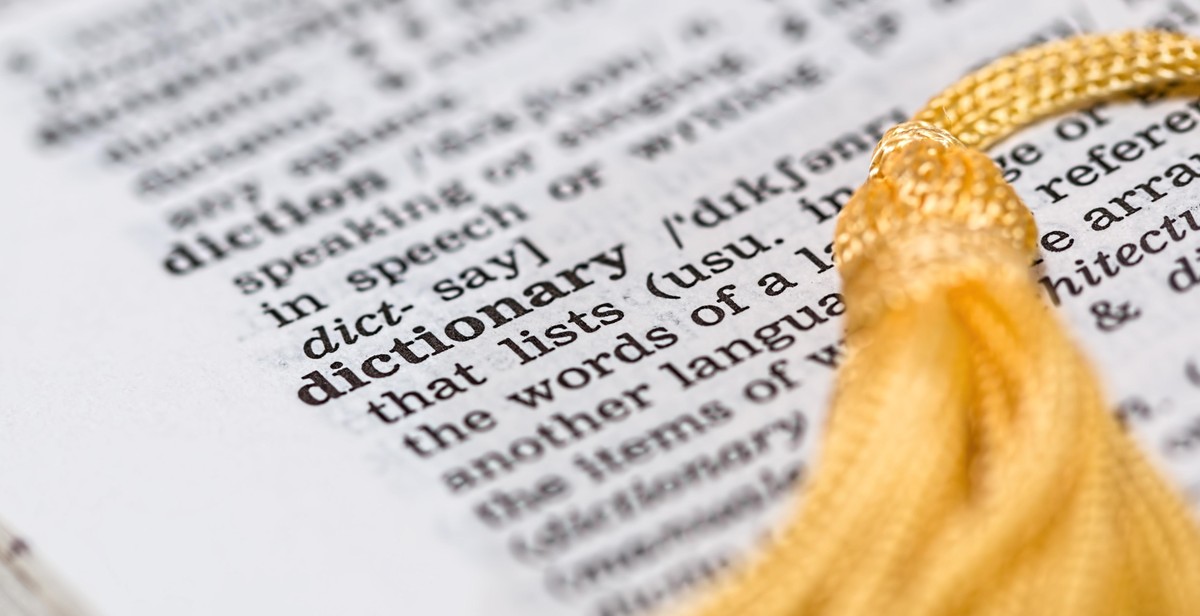How to Build a Basic Vocabulary in a New Language: Essential Words and Phrases
Learning a new language can be an exciting and rewarding experience. However, it can also be challenging, especially when it comes to building a basic vocabulary. Without a solid foundation of essential words and phrases, it can be difficult to communicate effectively in a new language.
As a professional article writer and content creator with years of experience in language learning, I have developed effective strategies for building a basic vocabulary in a new language. In this article, I will share my personal experience and insights on how to build a basic vocabulary in a new language.
Why Building a Basic Vocabulary is Important
Building a basic vocabulary is crucial for anyone who wants to learn a new language. Without a basic vocabulary, it is impossible to communicate effectively in a new language. A basic vocabulary provides the foundation for learning more complex words and phrases, and helps learners to understand and be understood in everyday situations.
Essential Words and Phrases to Learn
When starting to learn a new language, it is important to focus on essential words and phrases that are commonly used in everyday conversation. These include greetings, numbers, colors, days of the week, and common verbs and nouns.
One effective way to learn essential words and phrases is to use flashcards or a vocabulary app. This allows learners to practice and memorize words and phrases in a fun and interactive way.
Conclusion
Building a basic vocabulary in a new language is essential for effective communication. By focusing on essential words and phrases and using effective learning strategies, anyone can build a solid foundation for learning a new language.

Why Building a Basic Vocabulary is Essential
Learning a new language can be a daunting task, but building a basic vocabulary is essential to making progress. It can be tempting to jump straight into grammar and sentence structure, but without a solid foundation of vocabulary, communication in the new language can be frustrating and ineffective. Here are three reasons why building a basic vocabulary is so important:
Improved Communication Skills
When learning a new language, the ultimate goal is to be able to communicate effectively with others. Building a basic vocabulary is the first step towards achieving this goal. Knowing the most common words and phrases in a language allows you to express yourself in simple sentences and understand the responses of others. This can be incredibly empowering and motivating, especially in the early stages of language learning.
Increased Confidence
As you build your vocabulary and begin to use it in conversation, you’ll notice a significant boost in your confidence. You’ll be able to express your thoughts and opinions more clearly, and you’ll feel more comfortable interacting with native speakers. This increased confidence can have a positive impact on your overall language learning journey, as it encourages you to continue practicing and improving.
Better Cultural Understanding
Language and culture are closely intertwined, and building a basic vocabulary can help you better understand the culture of the language you’re learning. Knowing the words for common foods, greetings, and customs can give you a glimpse into the daily life of native speakers. This understanding can help you navigate cultural differences and show respect for the customs of the language you’re learning.
Overall, building a basic vocabulary is essential to making progress in a new language. It improves communication skills, increases confidence, and leads to better cultural understanding. By focusing on vocabulary building in the early stages of language learning, you’ll set yourself up for success and be well on your way to fluency.

Tips for Learning Essential Words and Phrases
Learning a new language can be challenging, but building a basic vocabulary is a great place to start. Here are some tips to help you learn essential words and phrases:
Start with Common Words and Phrases
When starting to learn a new language, it’s important to focus on the most common words and phrases used in everyday conversations. This will help you quickly build a foundation of essential vocabulary that you can use in real-life situations. Some common words and phrases to start with include greetings, numbers, and basic verbs.
Use Flashcards and Repetition
Flashcards are a great tool for learning new words and phrases. Create flashcards with the word or phrase on one side and the translation on the other. Practice using them regularly, and repeat the words and phrases out loud to help commit them to memory.
Practice in Real-Life Situations
Learning a language is not just about memorizing words and phrases, but also about practicing them in real-life situations. Look for opportunities to use the words and phrases you’ve learned, such as ordering food at a restaurant or asking for directions. Don’t be afraid to make mistakes – they are a natural part of the learning process.
Find a Language Exchange Partner
One of the best ways to practice a new language is by speaking with native speakers. Find a language exchange partner who is fluent in the language you’re learning and who is interested in learning your native language. You can practice speaking with each other, ask for feedback, and learn new words and phrases.
| Tip | Explanation |
|---|---|
| Start with Common Words and Phrases | Focus on the most common words and phrases used in everyday conversations |
| Use Flashcards and Repetition | Create flashcards and practice regularly to commit words and phrases to memory |
| Practice in Real-Life Situations | Look for opportunities to use the words and phrases you’ve learned in real-life situations |
| Find a Language Exchange Partner | Practice speaking with a native speaker and learn new words and phrases |

Essential Words and Phrases to Learn in a New Language
Learning a new language can be a daunting task, but building a basic vocabulary is a great place to start. Here are some essential words and phrases to learn in a new language:
Greetings and Introductions
Knowing how to greet someone and introduce yourself is key to starting a conversation in a new language. Here are some common phrases to learn:
- Hello/Hi – Salut, Hola, Hallo, こんにちは
- Good morning – Bonjour, Buenos días, Guten Morgen, おはようございます
- Good afternoon – Bonjour, Buenas tardes, Guten Tag, こんにちは
- Good evening – Bonsoir, Buenas noches, Guten Abend, こんばんは
- My name is… – Je m’appelle…, Me llamo…, Ich heiße…, 私の名前は…
- Nice to meet you – Enchanté(e), Mucho gusto, Schön, お会いできて嬉しいです
Basic Conversation Phrases
Being able to carry on a simple conversation is a great way to practice your new language skills. Here are some basic conversation phrases to learn:
- How are you? – Comment ça va?, ¿Cómo estás?, Wie geht es dir?, お元気ですか?
- I’m fine, thank you – Je vais bien, merci, Estoy bien, gracias, Mir geht es gut, danke, 元気です、ありがとうございます
- What’s your name? – Comment vous appelez-vous?, ¿Cómo te llamas?, Wie ist Ihr Name?, お名前は何ですか?
- Where are you from? – D’où venez-vous?, ¿De dónde eres?, Woher kommen Sie?, 出身はどこですか?
- Do you speak English? – Parlez-vous anglais?, ¿Hablas inglés?, Sprechen Sie Englisch?, 英語を話せますか?
- Excuse me – Excusez-moi, Perdón, Entschuldigung, すみません
Numbers and Counting
Being able to count and understand numbers is useful for many everyday situations. Here are some important numbers and counting phrases to learn:
- One, two, three – Un, deux, trois, Uno, dos, tres, Eins, zwei, drei, 一, 二, 三
- Ten, twenty, thirty – Dix, vingt, trente, Diez, veinte, treinta, Zehn, zwanzig, dreißig, 十, 二十, 三十
- How much does it cost? – Combien ça coûte?, ¿Cuánto cuesta?, Wie viel kostet das?, いくらですか?
- Can I have the bill? – L’addition, s’il vous plaît, La cuenta, por favor, Die Rechnung, bitte, お会計をお願いします
Directions and Locations
Knowing how to ask for directions and understand location words is helpful when traveling. Here are some important phrases to learn:
- Where is…? – Où est…, ¿Dónde está…, Wo ist…, …はどこですか?
- Straight ahead – Tout droit, Derecho, Geradeaus, まっすぐ
- Turn left/right – Tournez à gauche/droite, Gire a la izquierda/derecha, Biegen Sie links/rechts ab, 左/右に曲がってください
- Nearby – À proximité, Cerca, In der Nähe, 近くに
Food and Drink Vocabulary
Knowing food and drink vocabulary is essential for ordering in restaurants and grocery shopping. Here are some important phrases to learn:
- Menu – Menu,

Conclusion
Building a basic vocabulary in a new language is a crucial step towards becoming fluent in that language. By learning essential words and phrases, you can improve your communication skills and interact with native speakers with greater ease. In this article, we have discussed various strategies for building a basic vocabulary in a new language.
Start with the basics
When learning a new language, it is important to start with the basics. This includes learning common words and phrases that are used in everyday conversation. By focusing on the most important words and phrases, you can build a strong foundation for your language learning journey.
Practice regularly
Learning a new language takes time and effort. It is important to practice regularly and consistently to improve your language skills. This can include practicing speaking, listening, reading, and writing in the new language.
Use a variety of resources
There are many resources available for learning a new language, including textbooks, online courses, language exchange programs, and mobile apps. Using a variety of resources can help you stay engaged and motivated in your language learning journey.
Final thoughts
Building a basic vocabulary in a new language is an exciting and rewarding experience. By following the strategies discussed in this article, you can improve your language skills and achieve your language learning goals. Remember to be patient, persistent, and consistent in your language learning efforts, and you will see progress over time.
